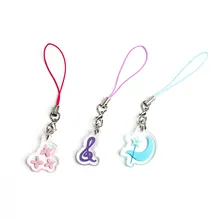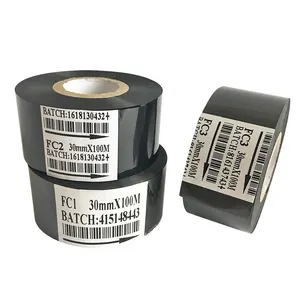What are Typewriter
A typewriter is a mechanical or electromechanical device that's designed for the character-by-character printing of documents. Its primary function is to transfer letters, numbers, and symbols to paper, creating a durable, legible text document. The typewriter has been an essential tool for writers, business professionals, and administrative personnel since its widespread adoption in the late 19th century. It has a keyboard with an array of keys corresponding to different characters; when a key is pressed, it activates a mechanism that results in the imprint of the chosen character onto paper.
The basic principle behind a typewriter's operation is simple yet ingenious. Pressing a key causes a typebar (in mechanical typewriters) or a print head (in electronic typewriters) to move and strike an inked ribbon against the paper, leaving an ink impression of the character. Mechanical typewriters use a direct physical connection between key and typebar, while electronic ones often use electrical signals to control the action. The carriage, which holds the paper, moves horizontally as each character is typed, advancing the paper one space at a time. At the end of a line, the typist manually or automatically shifts the carriage back to the starting position and advances the paper by one line.
Today's market for typewriters caters to a niche audience that appreciates the tactile feedback and nostalgia associated with these devices. Collectors, vintage enthusiasts, and those seeking a distraction-free writing experience find value in owning and using traditional typewriters. Modern iterations may incorporate contemporary features such as memory storage or connectivity options while retaining the classic typing feel.
Types of Typewriter
The world of typewriters is rich with variety, featuring an array of models each tailored to specific needs and preferences. Here’s an overview:
Manual Typewriter: These are entirely mechanical and operate without electricity. Known for their durability and classic touch, manual typewriters require more physical effort from the user but are valued for their reliability and portability.
Electric Typewriter: These require electrical power to operate and often provide a smoother typing experience with less effort needed per keystroke. They typically feature typeballs or daisy wheels instead of typebars.
Electronic Typewriter: A more advanced version of electric typewriters, these come with features like memory storage, correction tapes, and word processing capabilities. They bridge the gap between traditional typewriters and computers.
Portable Typewriter: Compact and lightweight compared to standard models, portable typewriters are designed for mobility. They are favored by users who need to type in different locations or have limited space.
Each type of typewriter has its own charm and use cases; manual models are popular among purists or for use in areas without reliable power sources. Electric and electronic variants offer convenience features suited for office environments or users accustomed to modern amenities while still desiring the typewriter experience.
How to choose Typewriter
Selecting the right typewriter for your business requires considering several factors that align with your needs. Here are some tips:
Type Mechanism: Consider whether a manual, electric, or electronic typewriter best suits your business operations. Manual models are excellent for sturdy reliability without reliance on power sources. In contrast, electric and electronic models offer ease of use with additional features like memory storage.
Portability: If you need to move your typewriter frequently or have limited space, you might opt for a portable model which offers greater flexibility without sacrificing too much functionality.
Features: Evaluate what additional features are necessary for your tasks. Electronic models might provide correction functions, various font styles and sizes, as well as word processing capabilities that could enhance productivity.
Durability: A typewriter is an investment; hence durability is crucial. Ensure that the model you choose can withstand your usage frequency.
Businesses should carefully assess their requirements before choosing a typewriter that aligns with their operational demands while also considering potential portability needs and desired features.
Best Typewriter on Alibaba.com
Alibaba.com stands out as an exceptional marketplace where businesses can discover an extensive selection of typewriters suitable for various purposes. The platform's global reach connects buyers with reputable suppliers from around the world, offering insights into different types of machines – from vintage manual designs that evoke nostalgia to modern electronic versions that blend old-world charm with contemporary functionality. Alibaba.com simplifies international trade by providing tools that facilitate communications in local languages and mobile-friendly buying experiences.
Businesses benefit from Alibaba.com's commitment to secure transactions through services like Trade Assurance which ensures payment protection until delivery fulfillment. With over two decades of experience in connecting buyers and sellers across diverse industries, Alibaba.com has established itself as a trusted partner for B2B sales. Whether seeking robust manual machines for on-the-go writing or feature-rich electronic models for efficient office use, businesses can confidently explore Alibaba.com's vast inventory to find their ideal typing companion without compromising on quality or dependability.
Common FAQs for Typewriter
What are the key differences between manual and electric typewriters?
Manual typewriters require physical effort for each keystroke and do not need electricity, making them highly portable and durable. Electric typewriters, on the other hand, use power to assist with keystrokes, which can reduce user fatigue and generally offer a smoother typing experience.
How do electronic typewriters differ from other typewriters?
Electronic typewriters are a step up from electric typewriters and usually feature digital components such as memory storage, correction tapes, and word processing capabilities. They combine the functionality of a computer with the physical typing experience of a typewriter.
Can portable typewriters perform as well as larger models?
Portable typewriters are designed to offer comparable performance to larger models while being compact for ease of transport. However, they might have fewer features or a slightly different typing feel due to their smaller size.
What should I consider when choosing a typewriter for my business?
When selecting a typewriter for business purposes, consider the type mechanism that suits your operational needs, whether you require portability, the specific features that will enhance your productivity, and the durability of the machine to ensure it can handle the volume of work.
Are there typewriters that can be connected to computers or digital devices?
Some modern electronic typewriters can be connected to computers or digital devices using USB or other ports. This feature allows for digital storage of typed documents and may offer additional functionalities like printing from the connected device.
How important is the choice of ribbon for my business's typewriter?
The choice of ribbon is crucial as it affects the quality of the text output and the longevity of use. Ensure you select ribbons compatible with your specific model and consider investing in higher-quality ribbons for frequent use or important documents.
Are there environmentally friendly options when choosing a typewriter?
Consider manual typewriters for an eco-friendlier option since they do not consume electricity. Also, look for models constructed from sustainable materials or those that offer refillable ribbons to reduce waste.
How can I ensure my chosen typewriter will last a long time?
To ensure the longevity of your typewriter, choose a model known for its durability and robust construction. Additionally, regular maintenance and proper care will extend the life of any typewriter.
Are there specific maintenance routines recommended for typewriters?
Regular cleaning of the keys and typebars, changing ribbons as needed, and professional servicing in case of mechanical issues are recommended. For electronic models, ensure software updates if available and check electrical components periodically.
Can I find accessories or replacement parts for older typewriter models?
Accessories and replacement parts for older models can often be found through specialty suppliers or online marketplaces. It's important to verify compatibility with your specific model before purchasing.
What kind of warranty should I expect with a new typewriter purchase?
Warranty terms vary by manufacturer but typically cover manufacturing defects and workmanship issues for a limited period. Always review warranty details before purchasing to understand what is covered.


































 浙公网安备 33010002000092号
浙公网安备 33010002000092号 浙B2-20120091-4
浙B2-20120091-4